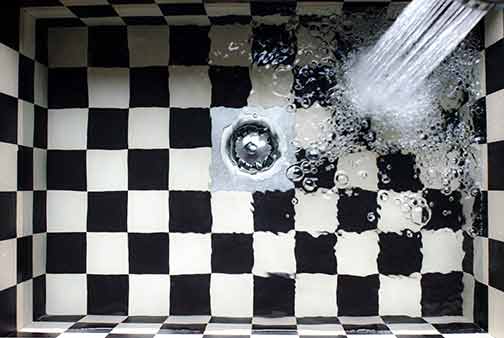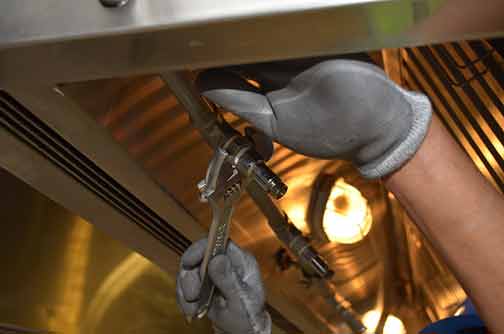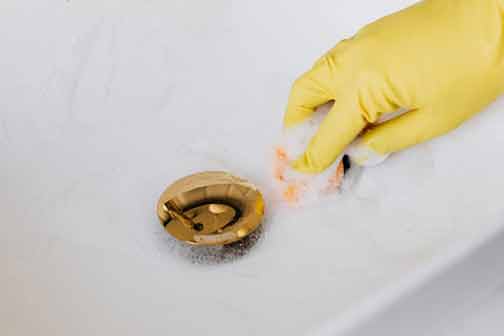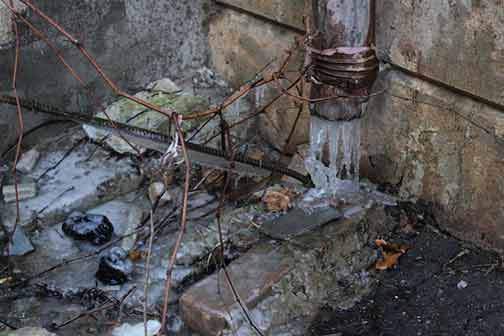Grease is one of the most common culprits behind plumbing issues. When you wash dishes or dispose of food waste down the sink, grease can easily enter your plumbing system. Initially, it may seem harmless as it flows down the drain in a liquid state. However, as it cools, grease solidifies and adheres to the inner walls of your pipes. Over time, this buildup can cause significant blockages, restricting the flow of water and leading to slow drains or complete clogs.
Moreover, grease is not just limited to cooking oils. It includes butter, margarine, lard, and even the fatty residues from meats. When these substances accumulate in your plumbing system, they create a sticky, stubborn layer that traps other debris, exacerbating the blockage problem. The result is a plumbing nightmare that can be costly and time-consuming to fix.
The Hidden Dangers of Organic Waste in Your Plumbing
Organic waste, such as food scraps, coffee grounds, and vegetable peels, may seem harmless when washed down the drain. However, these materials can wreak havoc on your plumbing system. Unlike grease, which solidifies, organic waste can break down and decompose, creating foul odors and attracting pests. Additionally, organic waste can combine with grease and other debris to form stubborn clogs that are difficult to remove.
One of the most problematic types of organic waste is fibrous material, such as celery or corn husks. These items can wrap around the interior of your pipes, creating blockages that are nearly impossible to dislodge without professional intervention. Furthermore, organic waste can disrupt the balance of bacteria in your sewer or septic system, leading to inefficient waste breakdown and potential system failure.
How Grease and Organic Waste Cause Severe Blockages
The combination of grease and organic waste is a recipe for disaster in your plumbing system. As grease solidifies and adheres to the pipe walls, it creates a sticky surface that traps organic waste and other debris. This buildup can quickly escalate into a severe blockage, causing water to back up and potentially overflow from your sinks, toilets, or drains.
In addition to causing blockages, the presence of grease and organic waste in your plumbing system can lead to corrosion and damage to your pipes. The acidic nature of decomposing organic waste can eat away at the pipe material, leading to leaks and costly repairs. Furthermore, the buildup of grease can create pressure within the pipes, increasing the risk of burst pipe emergencies and significant water damage to your home.
Steps to Prevent Grease and Organic Waste from Entering Your Plumbing
Preventing grease and organic waste from entering your plumbing system is crucial to maintaining a healthy and efficient plumbing system. Here are some steps you can take to mitigate these issues:
- Proper Disposal of Grease: Instead of pouring grease down the drain, collect it in a container and dispose of it in the trash. You can also let it solidify and scrape it into the garbage.
- Use Sink Strainers: Install sink strainers to catch food scraps and other debris before they enter your plumbing system. Empty the strainer regularly to prevent buildup.
- Compost Organic Waste: Composting is an excellent way to dispose of organic waste without harming your plumbing. Set up a compost bin for vegetable peels, coffee grounds, and other compostable materials.
- Avoid Using the Garbage Disposal: While garbage disposals are convenient, they can contribute to plumbing issues by breaking down food waste into small particles that can still cause blockages. Use your disposal sparingly and avoid disposing of fibrous or greasy materials.
- Regular Maintenance: Schedule regular plumbing maintenance to ensure your pipes are clean and free of blockages. Professional plumbers can use tools like hydro jetting to remove buildup and keep your plumbing system in top condition.
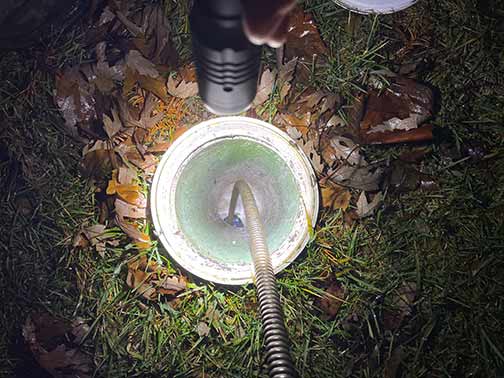
Plumbers have the expertise and tools to thoroughly clean your pipes, remove stubborn blockages, and ensure your plumbing system operates efficiently.
Understanding the Long-Term Benefits of Preventative Measures
Taking preventative measures to keep grease and organic waste out of your plumbing system offers numerous long-term benefits. By avoiding blockages and maintaining efficient water flow, you can extend the lifespan of your pipes and reduce the need for costly repairs. Additionally, a well-maintained plumbing system is less likely to suffer from leaks, burst pipes, or water damage, providing peace of mind and protecting your home from potential disasters.
Moreover, implementing these preventative measures can contribute to a more environmentally friendly household. Proper disposal of grease and organic waste reduces the strain on wastewater treatment facilities and minimizes the risk of environmental contamination. Composting organic waste also supports sustainable gardening practices, enriching the soil and promoting healthy plant growth.
The Role of Professional Plumbers in Maintaining Your Plumbing System
While taking preventative measures is essential, professional plumbers play a crucial role in maintaining your plumbing system. Regular inspections and maintenance by a licensed plumber can identify potential issues before they become major problems. Plumbers have the expertise and tools to thoroughly clean your pipes, remove stubborn blockages, and ensure your plumbing system operates efficiently.
In addition to routine maintenance, professional plumbers can provide valuable advice on best practices for keeping your plumbing system in top condition. They can recommend products and techniques to prevent grease and organic waste buildup, as well as offer solutions for any specific plumbing challenges you may face. By partnering with a trusted plumber, you can ensure the longevity and reliability of your plumbing system.
Conclusion: Protecting Your Plumbing System from Grease and Organic Waste
In conclusion, grease and organic waste are among the worst enemies of your plumbing system. Their ability to cause severe blockages, damage pipes, and disrupt septic systems makes them a significant concern for homeowners. By understanding the impact of these materials and taking proactive steps to prevent their entry into your plumbing system, you can protect your pipes and ensure the efficient operation of your plumbing.
Implementing proper disposal methods, using sink strainers, composting organic waste, and scheduling regular plumbing maintenance are all effective strategies to mitigate the risks associated with grease and organic waste. Additionally, enlisting the help of professional plumbers can provide peace of mind and ensure your plumbing system remains in optimal condition.
By taking these measures, you can safeguard your home from the costly and inconvenient consequences of plumbing issues, while also contributing to a more sustainable and environmentally friendly household. Protect your plumbing system today and enjoy the benefits of a well-maintained and efficient home.

